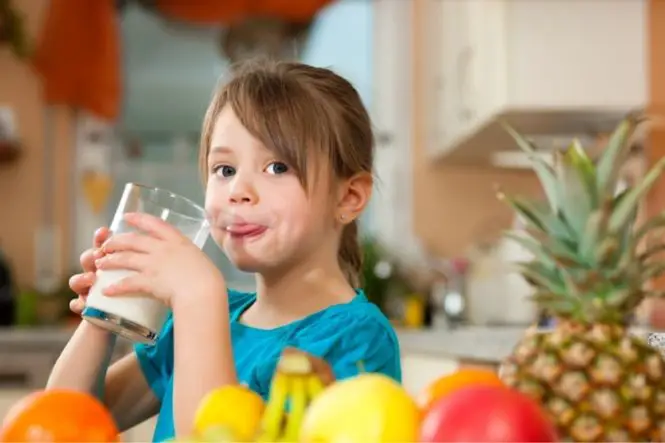Studies support the notion that a well-chosen vegetarian diet can be very healthy for adults, but what about children? Can a diet free of animal products provide all of the nutrients necessary for proper growth and development?
Table of Contents
Making the Vegetarian Choice
People choose vegetarianism for a variety of reasons. Many older children and teenagers from non-vegetarian families come to a point where they feel a moral conflict about eating meat, while vegetarian parents often strive to raise their kids as vegetarians, too. Whatever the reasons behind the choice, one thing is certain. With proper planning and a sound knowledge of childhood nutrition, a vegetarian diet can be healthful for children of all ages, even newborns. All of an infant’s nutritional needs can be easily met by consuming a diet exclusively of mother’s milk. For mothers who Choose Not To Breastfeed, commercially prepared soy infant formula is readily available.
Introducing Solid Foods
Most babies begin to Eat Solid Foods at about six months. Since the first foods introduced are typically iron-enriched cereals, vegetables, and fruits, the consumption of meat need not be an issue in the beginning. Older babies and toddlers typically prefer plant based foods to meat since they are often easier to chew, so planning a vegetarian diet for toddlers is often trouble-free.
Dietary habits are usually well-established by the time that children are ready to begin school, and parents who have fed their children an exclusively vegetarian diet often find that their kids express no desire to eat meat, and are quite satisfied with plant based food selections.
What About Protein?
Protein is important for growing children, but vegetarian parents know that vegetable proteins can be just as just as beneficial to the body as those coming from meat. A varied menu of grains, beans, vegetables, and fruits supplies sufficient protein, so protein deficiency isn’t a problem as long as the vegetarian diet encompasses a nice variety of these healthy foods. Meat also provides folate, iron, zinc, thiamin, vitamin B12, and essential fatty acids, so vegetarians must be sure that the foods they choose contain sufficient quantities of these elements to ensure optimal health.
Most vegetarian parents believe that the effort to select a complete diet based in plant based foods is well worth the planning, since studies confirm that meat consumption has considerable drawbacks, the most important being that saturated fats and cholesterol that can clog arteries and contribute to heart disease.
A Nutrient-Rich Diet
While meat does contain some elements necessary to growth and development, these same nutrients can be found in plant-based foods, too. Iron from meat is more easily absorbed than iron coming from other sources, but by adding a sufficient amount of foods rich in vitamin C, which helps in the absorption of iron, the body will get all of the iron that it needs. Iron fortified cereal, readily available at major markets, is recommended for the first two years of life.
And since children need to consume more fat than adults, vegetarian children should be encouraged to eat nut butters, avocados, and assorted soy-based products. Several manufacturers make a tasty variety of soy based ‘chicken nuggets’ and ‘hot dogs’ which are very appealing to children. Since vitamins D and B12 may be lacking in a typical vegetarian diet, many paediatric dieticians recommend supplementing the diet with a daily multi-vitamin tablet.
Benefits of Vegetarian Diets
There are a number of proven health benefits to consuming a vegetarian diet. Diets high in animal fats increase the risk of cardiovascular disease, cancer, and diabetes in adults. Since most of our habits are learned in childhood, dietary ones included, it makes perfect sense to encourage kids to develop healthy eating patterns while they are young.






